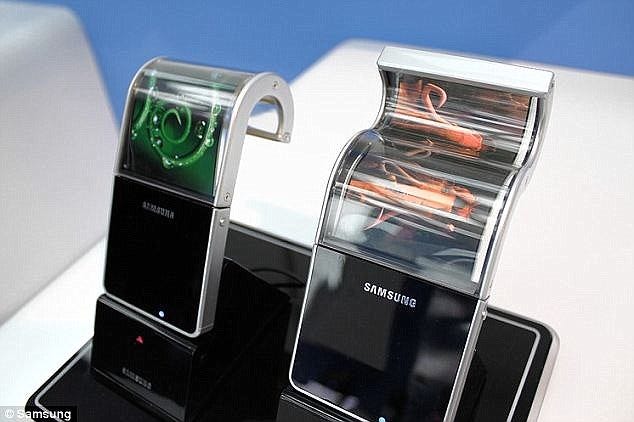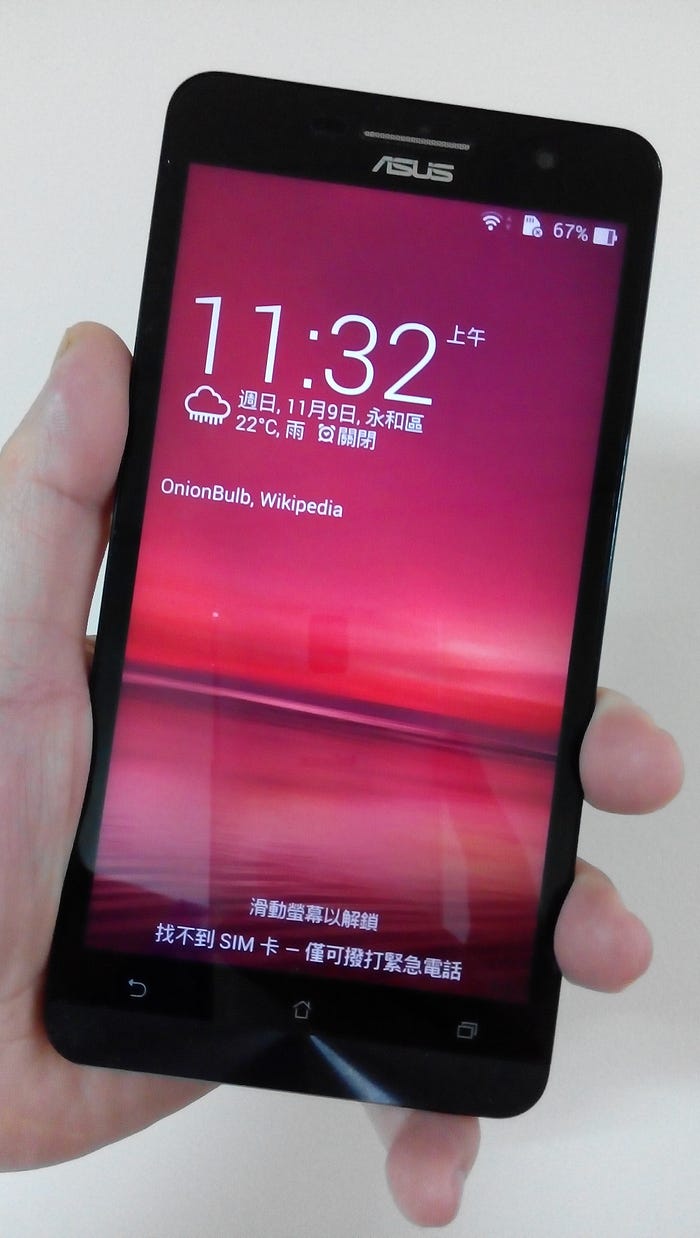Going by the current trend in smart phones technology, some of the obvious technologies that may surface in the near future could be:

Foldable design
Mobile companies are already floating the idea and coming up with beta versions of foldable smartphones. While issues like battery performance, scratch on screen and durability are yet to be seen but considering rage of wearable devices, a foldable smartphone projected as the hybrid solution could be a reality.
Wireless charging
A few smart phones available in the market today are already using this technology. Refinement may make it the norm for most of the smartphones. Users might not need to carry lead to charge their phones. Future may see a central magnetic device plugged in to a switchboard and emitting magnetic waves that recharges all the smartphones in the vicinity.
A faster data transfer
As the next change, USB 3 cable is going to replace the existing USB 2 cable in smart phones. It will result in speedy data transfer between computer and mobile. Even the wireless data transfer between smart phones and computer is going to be quicker than it is today.
An OLED display screen
Mobile phones in future are going to be smarter in the way it consume power. Future will see influx of foldable screens fitted with OLED display screen. It will consume less power and give a vivid and bright picture than normal LCD or LED screens.

Slimmer mobile phones
Companies competing in the premium segment are hell bent to offer slimmer smart phones than others. It means mobile manufacturer companies will be doing away with non — removable batteries. Fixed battery offers saves space which can be used to fit in the circuitry and a slimmer and compact mobile can be designed.
Non-expandable storage
Just like fixed battery, doing away with external storage MMC cards will further save space. Removing Mobile SD card from a smartphone is supposed to improve the performance as most of the times, error in storage device creates problems in the mobile phone.

A smarter digital assistant
Useful apps like health apps, apps for financial planning, social communicator, personal planner and organizer are going to make life better. Apart from the proprietary apps by the mobile phone makers, even the native apps will get the edge. Developers will benefit from the latest OS, Android M for devices running on Google OS and iOS 9 for iPhones and iPads.
Evolved E-wallet
Smartphone users may not need to carry the wallet for shopping, dining or for any kind of money transaction at all. Mobile companies may offer payment solution which completely does away with third party payment model and ultimately benefits the users.
Self-charging feature
Smartphones rear cover may be coated with thin layers of solar plates to charge mobile battery. Although there are features and apps that kill the background processes to save the battery, future may also see new technology powering self-charging of a smartphone in case of an emergency.
Mobile giants like Apple and Samsung will continue to introduce innovative technologies, smartphone arena may also see the surprise entry from the new and less known companies alike. Apart from two most popular operating systems for the smartphones, Google Android and Apple iOS, future may also see new operating systems too.


Comments
Post a Comment